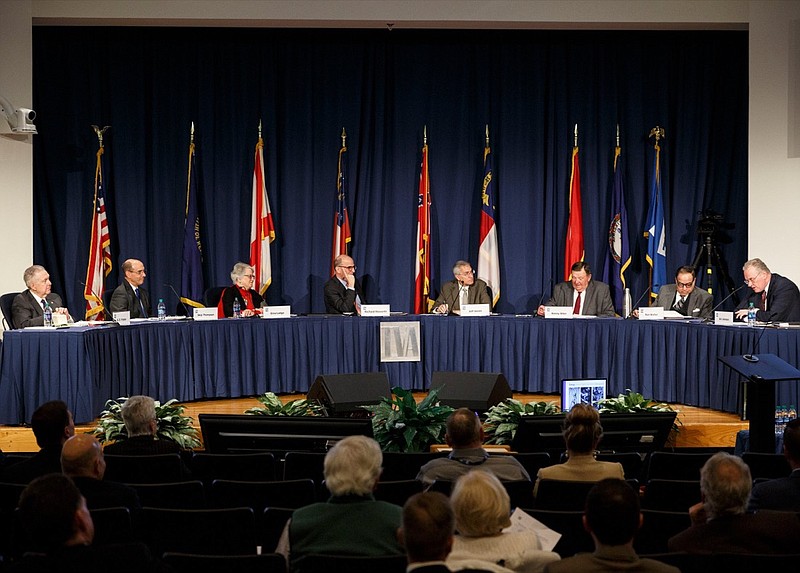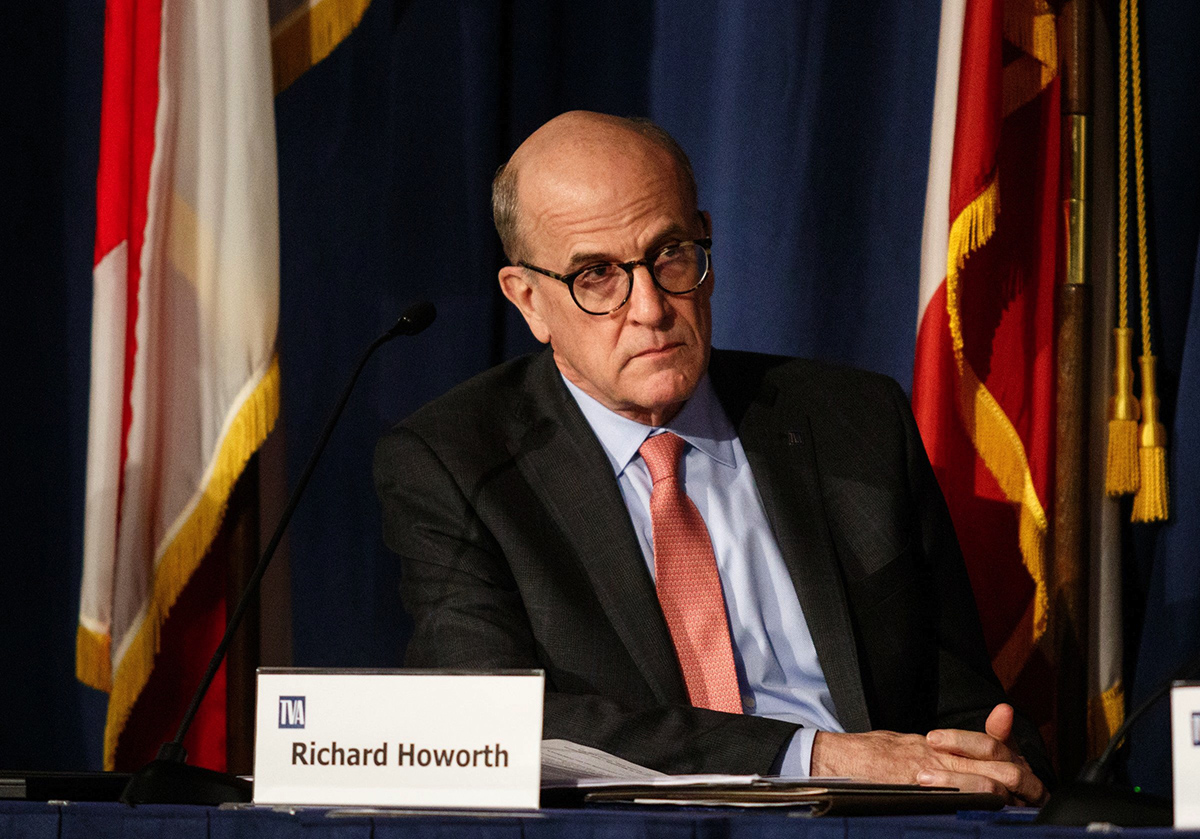The Tennessee Valley Authority board is meeting Thursday in Franklin, Tennessee, for its quarterly board meeting to set policy and spending for America's biggest government-owned utility.
TVA spends tens of thousands of dollars each year in staff time, jet travel and rental fees to bring its board meetings and public advisory boards to different sites across its seven-state region. But the board committee meetings earlier this week where most of the discussion among directors about the agency will occur are not open to the public, even though Tennessee state legislators and the congressman from TVA's hometown think they should be.
Last month, both houses of the Tennessee General Assembly voted unanimously and Gov. Bill Lee signed a resolution in support of federal legislation to require TVA to conduct all board committee meetings in public. The state House voted 93-0 (with one abstention) and the state Senate voted 30-0 to back a bill to require TVA to conduct more of its board meetings, including its committee, in public with publicly available minutes.
"It is vitally important to the citizens of Tennessee that TVA, as an entity created and protected by Congress, should conduct their business in the open and be as transparent as possible," the legislative resolution says.
The measure supports a bill that U.S. Rep. Tim Burchett introduced as his first bill in Congress in January, known as the Tennessee Valley Authority Transparency Act of 2019.
"Both in the state legislature and as mayor, I focused on increasing openness and transparency in government, and this bill continues those efforts at the federal level," said Burchett, a former Knoxville mayor elected to congress last fall. "While I understand that TVA has reasons for not wanting to open all meetings to the public, as an entity created and protected by Congress, the public deserves to know the Authority's business is as open and transparent as possible."
Board opposes open committee sessions
TVA Chairman Richard Howorth insists the TVA board "works hard to be open and transparent," but he said board committee meetings, where most of the discussions about TVA policy, budget and direction occur along with the utility's senior staff, don't need to be open to the public. Howorth said requiring committee and subcommittee meetings of the TVA board to be conducted in public might inhibit discussions, reveal business sensitive information and add to TVA's cost of doing business.
"Board committee meetings are working sessions, if you will, to allow directors to pursue and discuss facts, issues or ideas in a 'kitchen table' setting," Howorth said in a statement to the Times Free Press. "In such an informal setting we can ask the questions we need to ask, challenge information or play devil's advocate - all to gain the knowledge we need to make the decisions we do. These meetings, as you know, are constituted shy of a board quorum and thus render us unable to make any board decision in this setting."
Howorth, who will step down Thursday as TVA chairman to be replaced by Decatur, Alabama, businessman James "Skip" Thompson, said confidential business and legal information is shared in the committee meetings "to provide directors with better insights and thus better oversight."
Opening up such sessions to the public may at times not be practical or safe. Howorth said.
"Committee meetings are often held in TVA operation areas that contain unique safety and security considerations, again for us to gain the perspective we need," he said. "The board's present position is that opening committee meetings are mainly in the interest of a few and will generate more time and more cost to customers in the long run, thereby lessening the effectiveness of the meetings."
Other means of public input
TVA has created the Regional Resource Council and the Integrated Resource Plan advisory boards, which meet in public, to review TVA's natural resource policies and its long-term power plan now being shaped to guide TVA for the next 20 years. Additionally, TVA conducts public listening sessions before each board meeting, including a 2-hour session on Wednesday in Franklin.
But critics complain that the public listening sessions aren't live-streamed anymore, and members of the public aren't allowed to engage in conversations or ask directors questions about TVA policy in such settings.
Lindsay Pace, a regional organizer in Tennessee for the Renew TN Campaign by the Southern Alliance for Clean Energy, said "There are very few opportunities for the public to engage with TVA" and the most important decision making seems to be occurring in private committee meetings.
"TVA board meetings are highly scripted, with the public delivering comments to a mute board," she said. "Vital decisions, such as the Grid Access Charge [raised by TVA last year and scheduled to be modified by the board today], are being made with very little public participation because the real discussion between board members is happening behind closed doors in committee meetings."
TVA is both business and government
As a self-funded federal corporation, TVA has always operated as both a government entity and a power business. Unlike investor-owned utilities regulated by state public service commissions, the TVA board both sets policies and regulates power operations in its seven-state territory.
The TVA was established in 1933 in the depths of the Great Depression by President Franklin D. Roosevelt who wanted "a corporation clothed with the power of government but possessed of the flexibility and initiative of a private enterprise."
Through most of its 86-year history, TVA was governed by a three-member board, appointed by the president and confirmed by the U.S. Senate, and in its early days, the TVA board did not have public meetings. In 2004 at the urging of then Senate Majority Leader Bill Frist, R-Tenn., the TVA board was expanded to nine members who serve as part-time directors and hire a full-time CEO to run the federal utility. Frist said the changes would help TVA act more like a business with better oversight and control under a single CEO.
Howorth said TVA has a government relations team that can sit down with any legislator to address questions or concerns. But he said current law does not require TVA to conduct all of its meetings in public.
"TVA complies with all federal requirements regarding public input," he said.
Contact Dave Flessner at dflessner@timesfreepress.com or at 757-6340.

